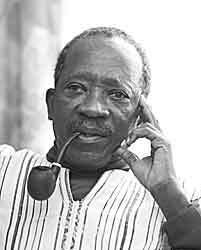A Quote by Kage Baker
Written and directed by French showman Georges Melies, 'Le Voyage' features one of the most indelible images in cinema history: the wounded Man in the Moon bleeding like a particularly runny Brie, grimacing in pain with a space capsule protruding from his right eye.
Related Quotes
I think cinema is needed throughout Africa, because we are lagging behind in the knowledge of our own history. I think we need to create a culture that is our own. I think that images are very fascinating and very important to that end. But right now, cinema is only in the hands of film-makers because most of our leaders are afraid of cinema.
I was only in second grade when the Russian Cosmonaut Yuri Gagarin became the first man in space. The night of his launch - April 12, 1961 - I went out onto the front porch and stared up at the stars, trying to see his capsule passing overhead. Like millions of others, I was enthralled by the idea of space exploration and have been ever since.
Man with all his noble qualities, with sympathy which feels for the most debased, with benevolence which extends not only to other men but to the humblest living creature, with his god-like intellect which has penetrated into the movements and constitution of the solar system- with all these exalted powers- Man still bears in his bodily frame the indelible stamp of his lowly origin.
Frustration filled his features. "Rose I've done a lot of bad things, most of which I can never fix or find redemption for. My only choice now, if I want to reclaim my life, is to go forward, stopping evil and doing what's right. And what is NOT right is taking a woman from another man, a man I like and respect. I'll steal cars. I'll break into houses. But there are lines I WILL not cross, no matter what I—
His voice was an omnipresent cry in our electronic world. His sharp features, majestic looks, and prancing style a vivid etching on the landscape of our minds. Bob Marley was never seen. He was an experience which left an indelible imprint with each encounter. Such a man cannot be erased from the mind. He is part of the collective consciousness of the nation.





































